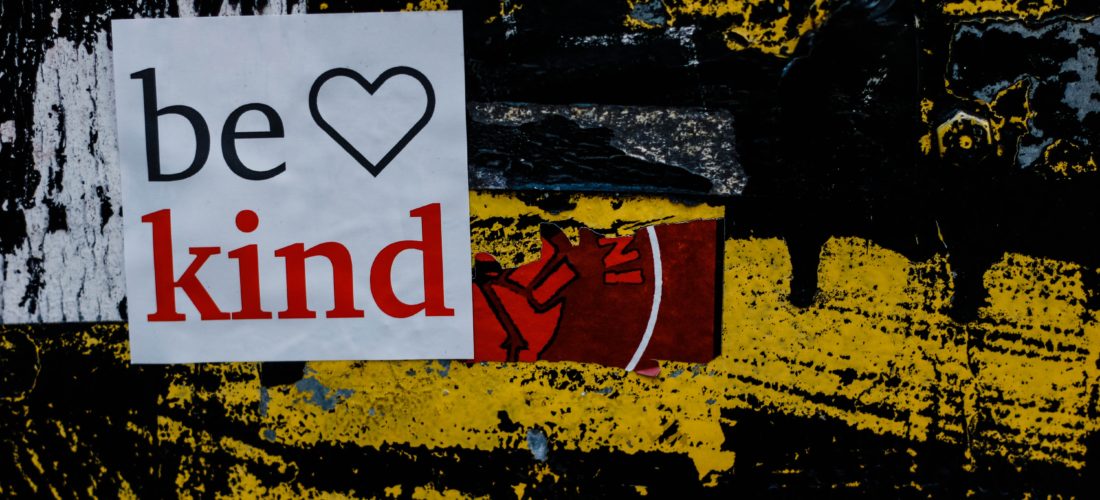I ran into the missionaries today. Well, not so much as ran into them but we happened to be in the same aisle in the same grocery store at the same time. There were four of them—walking around, discussing what food to buy—and they walked right by with barely a glance. I noticed them, but who wouldn’t notice a group of young men in white shirts and ties walking around a grocery store in the middle of a Monday afternoon? Also, the black name tags were a dead giveaway.
Once again, I felt the divide that comes with being an inactive member. I’m still part of that world, yet not entirely. Two of those missionaries could be serving in my ward and I would have no idea. If they were, we might’ve recognized each other. Instead, I politely ignored them as we passed one another.
Then, I had a small moment and did something impulsive. I gathered up the cash I had on hand (around $50) and walked over to them.
“Missionaries,” I called out. “Hey, I know you’re on a budget, so here. Get yourself something nice.”
“Wow,” the one closest to me said, “thanks!”
“What’s your name?” another asked.
“What ward are you in?” a third one asked. It was that secret code: Am I a member or an investigator? Maybe I have family in the church and I’m yet to be baptized. Sorry, Elder, you’re barking up the wrong tree.
I gave them my name and my ward. See? I’m a member after all. They shook my hand, thanked me again, and we went our separate ways. The whole exchange left my heart pounding. I was all jittery, like I’d had too much coffee.
Why did I do that? Why did I make such an impulsive decision? I don’t usually give strangers money. As with everything within the church, I have mixed feelings about missionaries and missionary work. I don’t really support what they’re doing. If anything, I look at missionaries with a bit of sadness. They don’t know what they don’t know and I wonder how many of them would be shocked at the things I could tell them.
Years ago, I would’ve attributed this impulse as a “prompting from the spirit.” Their position as missionaries would’ve garnered my respect and I would’ve given them extra smiles and encouragement. I might’ve even thrown in how proud I was of them and talk to them about my nephew who’s also on a mission. I’d make a bigger connection with them, standing in the middle of a grocery store.
In many ways, I wish they’d known who I was: an apostate, someone who’s turned their back on the gospel. My cart should’ve been overflowing with coffee and alcohol and I should’ve worn one of my many tank tops. I wanted to let them know I’m not one of them. I’m an apostate, yet I took the time to be kind and generous.
I didn’t, though. I didn’t tell them, and I didn’t challenge them. I looked like a kindly church member giving them a gift. My ward’s name was enough to tip them off: Hey, I’m one of you.
I’m not one of them, but they don’t know that.
I’m sure one of those missionaries will use this experience to build up their faith. I might show up in a letter home or in a testimony meeting. Years from now, when they reminisce on the two years they sacrificed for the church, they’ll remember the random member who was moved by the spirit to give them $50.
Maybe, with luck, they’ll remember my name and ward and contact my bishop. He’ll say, “Sister Marden? You sure? She’s not even active!” So, of course, this will mean that deep down I must know it’s true. Why else would I give them money?
So, basically, no matter how it’s framed, I strengthened those missionaries testimonies today. I’m either a kind church member or an apostate who really, deep down, knows it’s all true.
I’m not either one of those things, so why did I do it?
I did it because the first thought as they passed me by was “Those poor missionaries. It’s gotta suck.”
Missions aren’t easy. This area, in particular, is probably one of the hard ones. I can’t recall the last time we had an investigator or a convert baptism. The church is actually shrinking around here while the whole area is booming with people moving in. It’s something my parents lament about every so often: The city is growing, but the church is shrinking.
I’m sure those missionaries are working hard, they’re doing their best, and I wouldn’t be surprised if they feel as if they’re not getting anywhere. I’ve read enough stories on Reddit to understand the pressure and strain that come with a mission. It’s not their fault, yet how much of the burden and guilt are they carrying around with them?
I did it because I wanted something to go right for them. I wanted to experience some human kindness, to lift them up and acknowledge the hardness these two years might bring. These young men are far from home and likely living on their own for the first time. I can only imagine how stressful, exhausting, and worrying this must be. I have those same worries for my nephew who is far from home, living on his own for the first time, and struggling to find investigators in an area teeming with people.
I just wanted to be kind. Even though I no longer believe, I do understand. Between the things I experienced and the stories I’ve heard, I understand. It was that understanding that led me to pull out the cash in my wallet and walk it over to them.
I hope they used it to buy a board game or go out for lunch. Maybe they used it for ice cream or Halloween candy. Maybe they saved it for Christmas presents to send back home to a sibling or a parent. It doesn’t matter, I just hope they used it to bring joy to their day.
Because even apostates have warm hearts.



